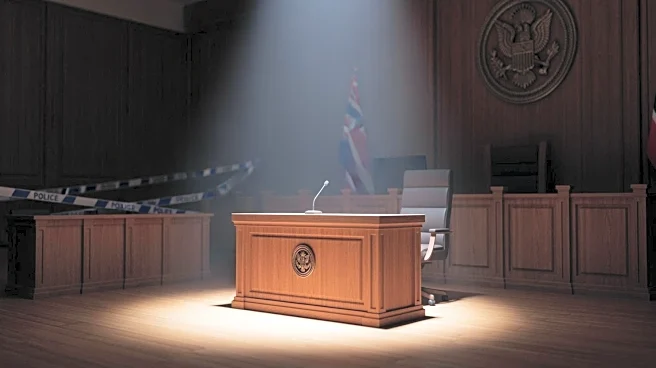What's Happening?
The Supreme Court is currently hearing arguments in a significant redistricting case from Louisiana, focusing on Section 2 of the Voting Rights Act. NAACP President Derrick Johnson has spoken about the potential
impacts of this case, emphasizing its importance for voting rights and representation. The case addresses whether the current district maps dilute minority voting power, a critical issue for civil rights advocates.
Why It's Important?
The outcome of this case could have profound implications for voting rights and electoral representation in the U.S. It may set a precedent for how courts interpret the Voting Rights Act, particularly in relation to minority representation. A decision favoring the current maps could weaken protections against racial gerrymandering, while a decision against them could strengthen efforts to ensure fair representation. This case is pivotal for civil rights groups and minority communities seeking equitable political representation.
What's Next?
The Supreme Court's decision will be closely watched by civil rights organizations, political leaders, and legal experts. Depending on the ruling, there may be increased advocacy for legislative changes to protect voting rights. The case could also influence future redistricting efforts across the country, impacting how districts are drawn and the balance of political power. Stakeholders may prepare for potential legal challenges and mobilize efforts to address the ruling's consequences.
Beyond the Headlines
The case highlights ongoing debates about racial equity in electoral processes and the role of the judiciary in safeguarding civil rights. It underscores the importance of the Voting Rights Act in preventing discrimination and ensuring fair representation. The case may prompt broader discussions on the need for comprehensive reforms to address systemic issues in redistricting and voting rights.









